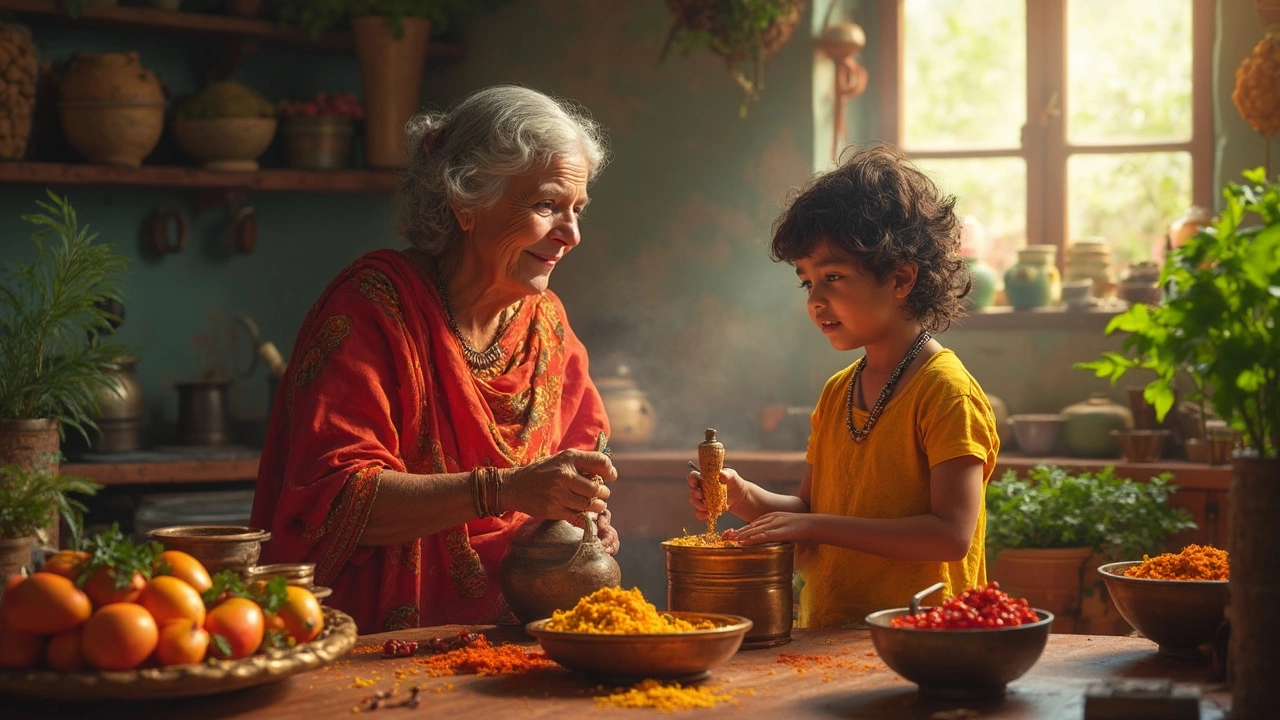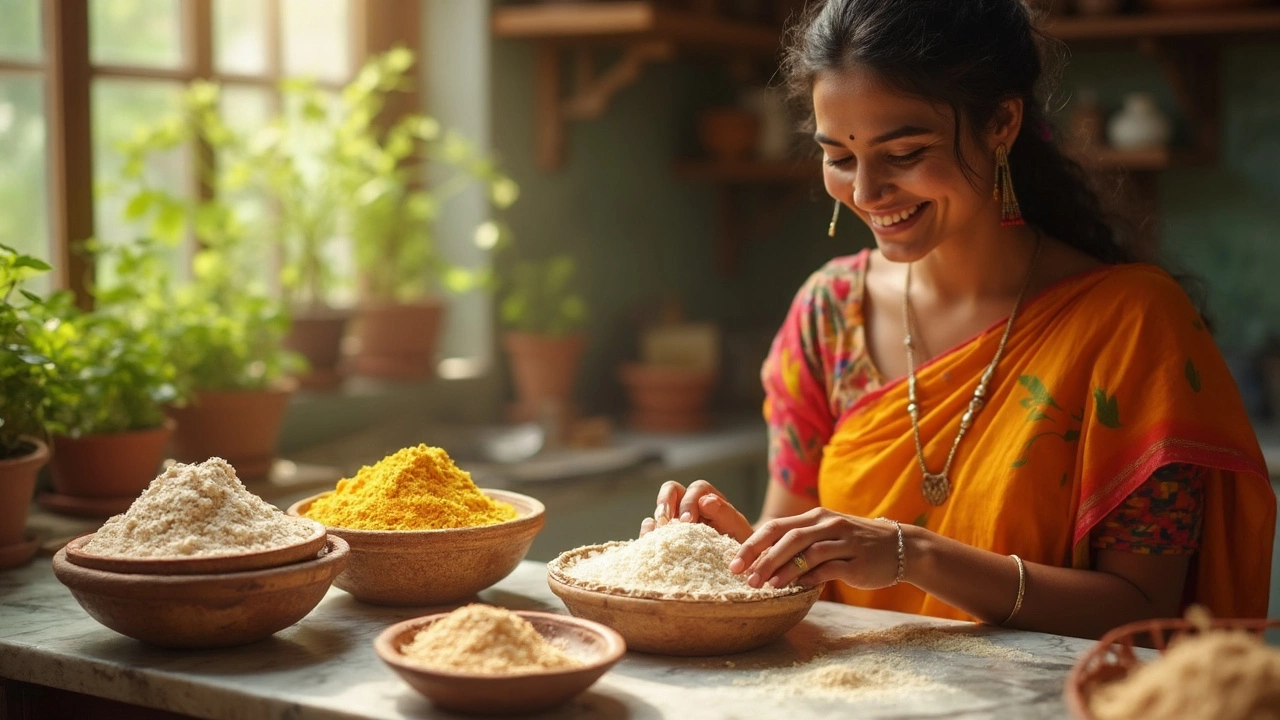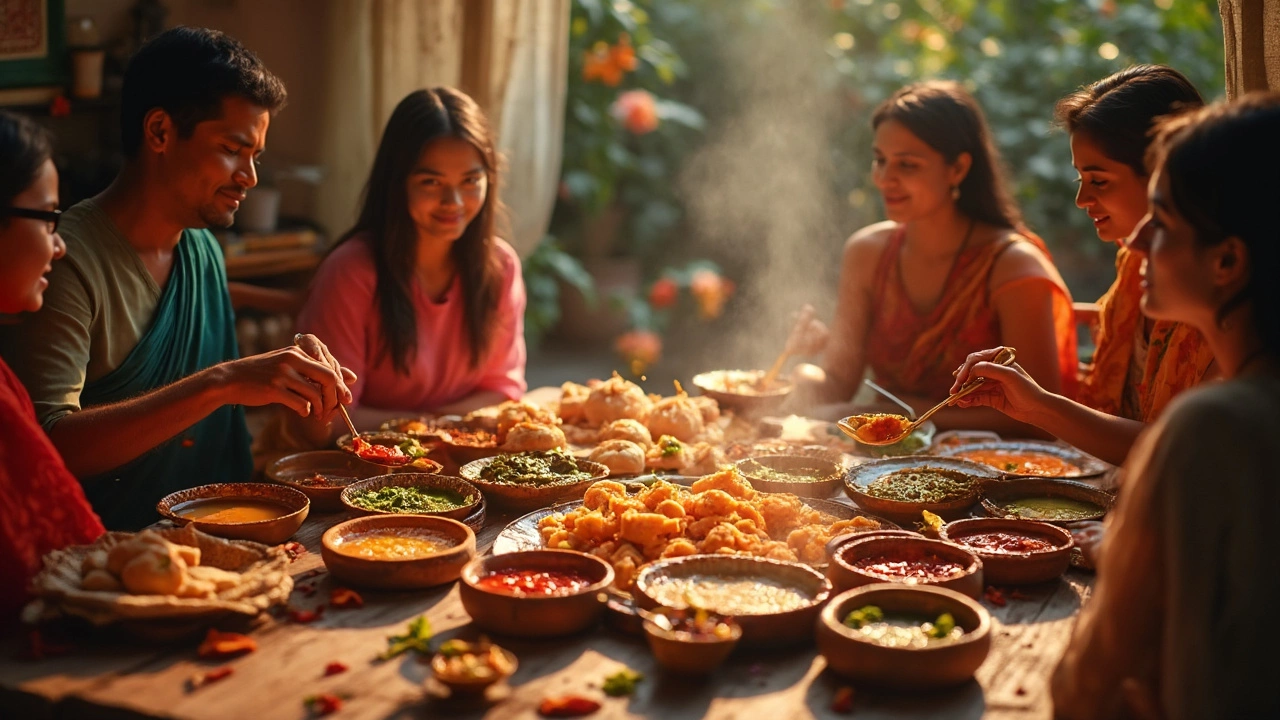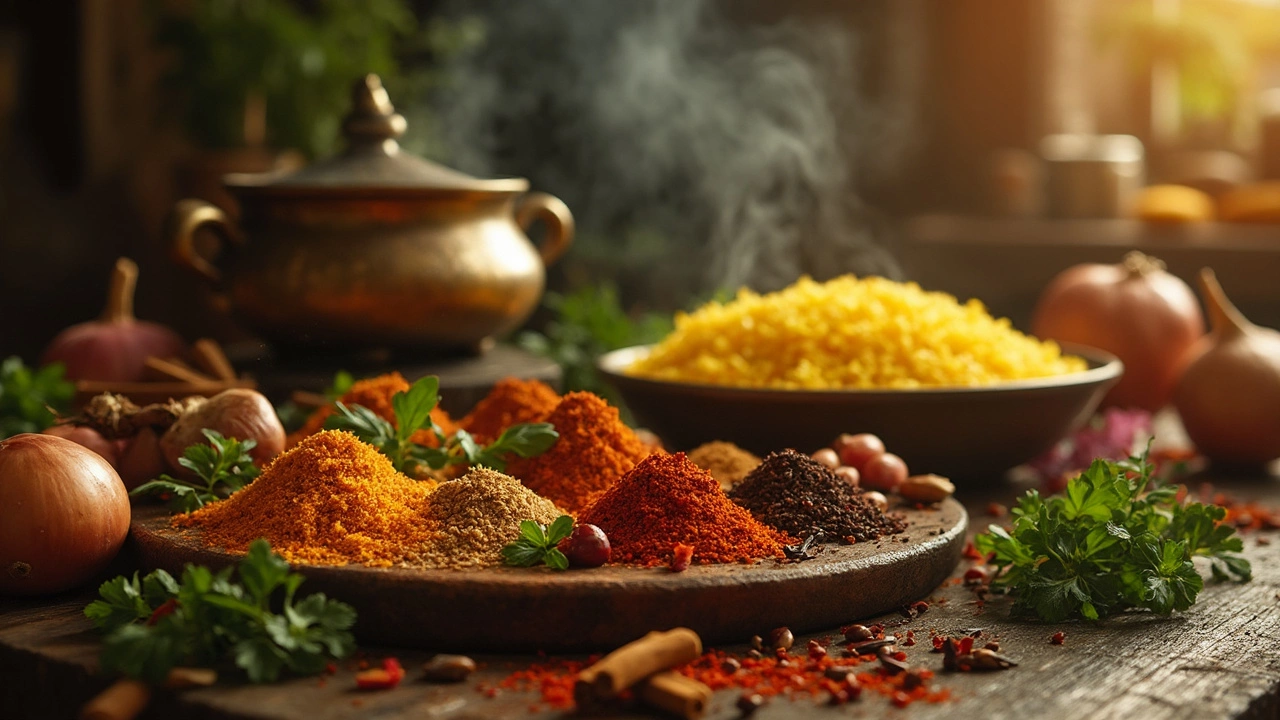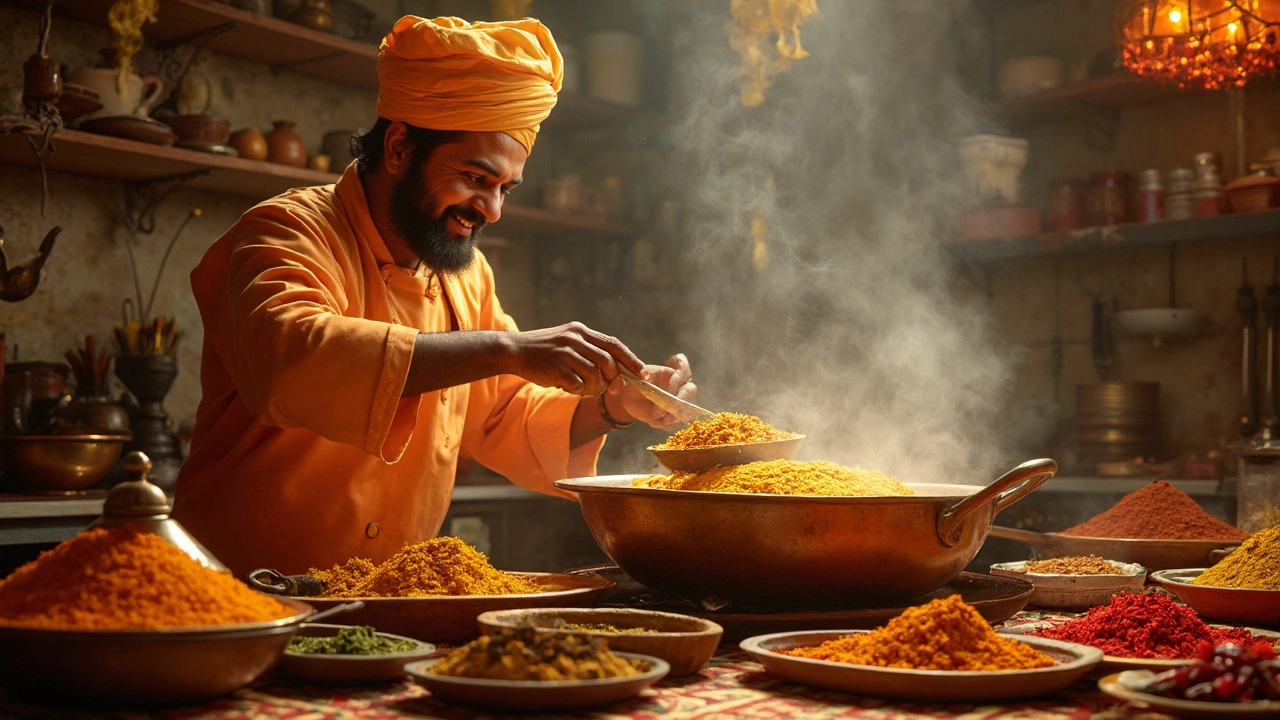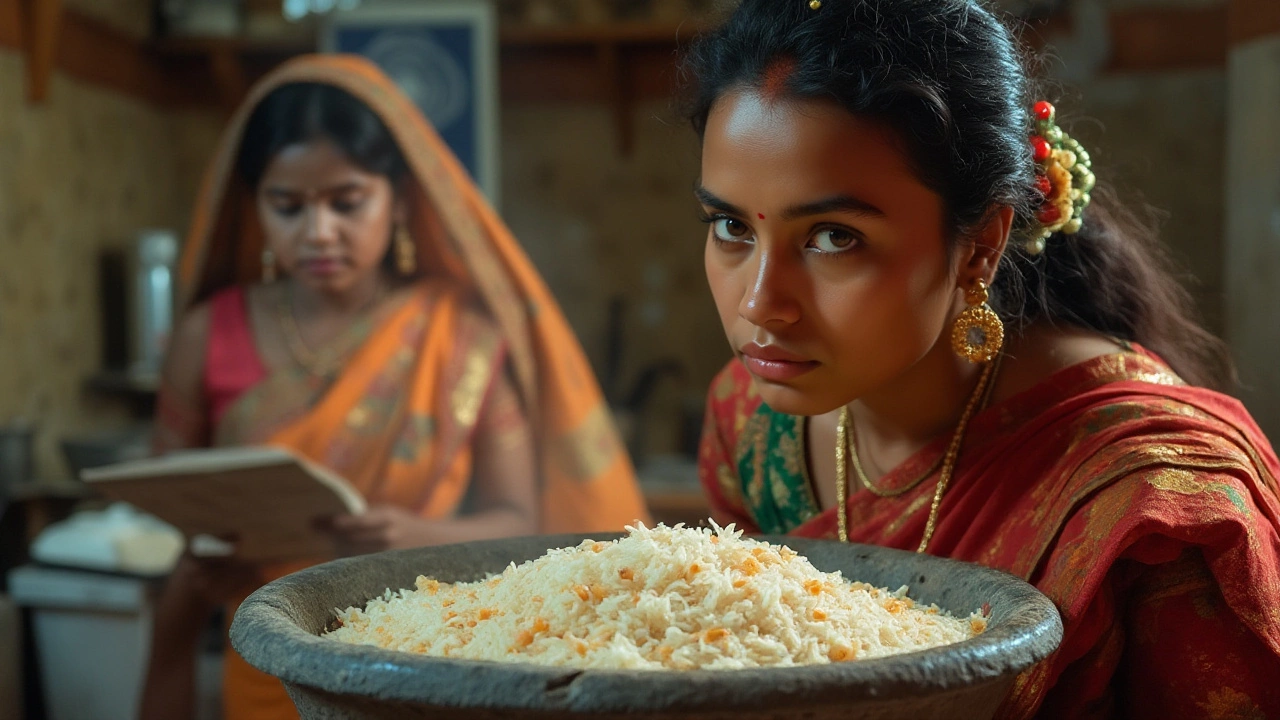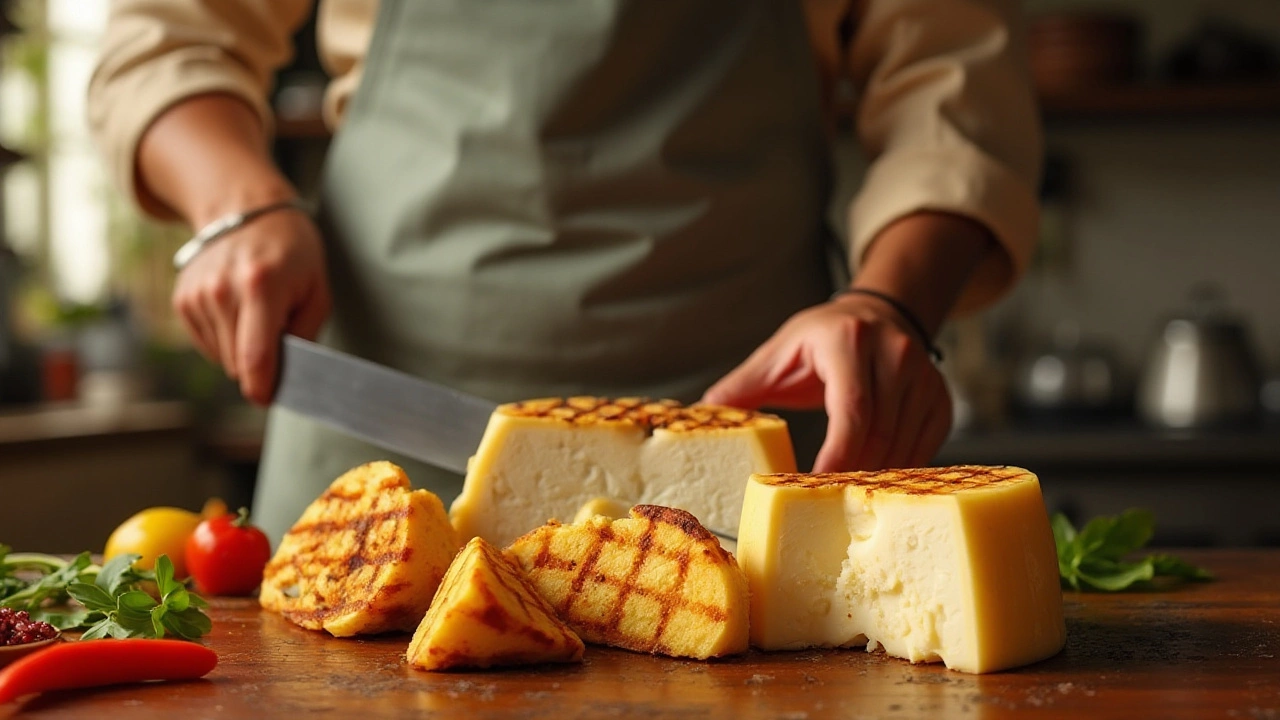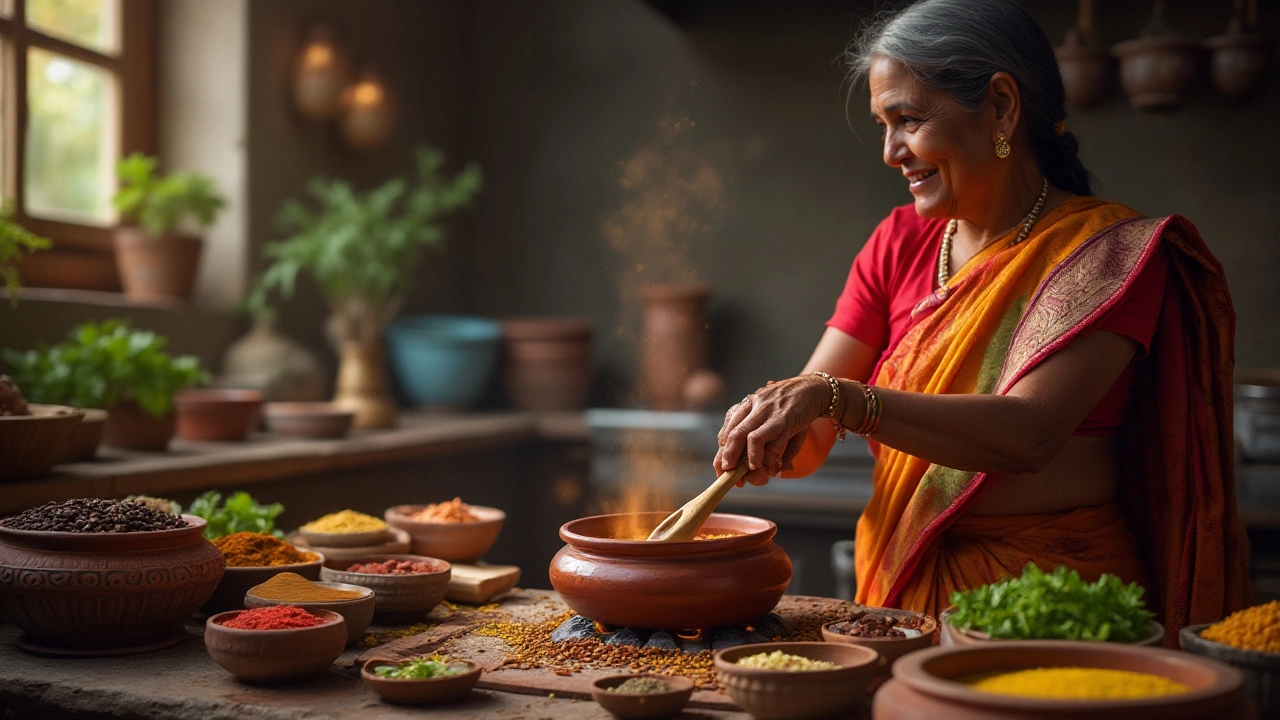Indian Food Recipes: Easy, Flavorful Dishes for Every Day
Looking for Indian meals that fit a busy schedule but still taste amazing? You’re in the right spot. Here we bring you practical tips and quick recipes that let you enjoy authentic flavors without the hassle. Whether you crave a hearty breakfast, a spicy snack, or a crowd‑pleasing dinner, we’ve got a shortcut for you.
Quick Breakfasts to Kickstart Your Day
Morning rush doesn’t have to mean skipping a nutritious start. Try a 5‑minute upma loaded with veggies, or whisk together a protein‑packed paneer scramble. Both dishes use pantry staples and can be tossed in a pan while you get ready. For a southern twist, blend fermented dosa batter with a pinch of salt and cook thin crepes—ready in minutes, especially if you use the 2‑hour fermentation hack we cover.
If you prefer something sweet, blend ripe bananas with a spoon of jaggery and a sprinkle of cardamom for a quick batter. Cook small pancakes on a hot griddle, and you have a satisfying, energy‑rich breakfast. These ideas keep you full, give you a taste of India, and stay under ten minutes.
Flavorful Main Courses and Secrets
Biryani lovers often wonder why the dish is so addictive. The secret lies in layering partially cooked rice with spiced meat or veggies, then sealing the pot to trap steam. Adding a handful of potatoes not only stretches the dish but also soaks up the aromatic broth, giving every bite a soft, buttery bite.
For a lighter dinner, fire up a tandoori chicken grill. The red liquid you see isn’t blood—it’s simply melted butter and spices mixing during cooking. Pat the chicken dry, coat with a yogurt‑spice mix, and grill until the edges char. Serve with a side of mint chutney, which pairs perfectly with grilled meats or even roasted veggies.
Got dietary restrictions? Skip onion and garlic by using asafoetida (hing) and roasted cumin powder. This combo adds depth without the usual aromatics, making it ideal for fasting or sensitive stomachs. Toss it into a chicken curry or a lentil dal for a full‑bodied flavor that still respects your needs.
When it comes to sauces, the difference between chutney and relish often confuses home cooks. Chutney is usually fruit or herb‑based with a balance of sweet, sour, and spicy notes, while relish leans more toward a pickled, tangy profile. Pair mango chutney with sambar, or mix tomato relish into a sandwich for a zingy boost.
Don’t forget the basics—choosing the right flour for soft rotis makes a huge difference. Whole wheat atta gives a nutty taste, but a blend with a bit of maida (refined flour) yields fluffier circles. Knead well, rest the dough, and cook on a hot tawa for that perfect puff.
Finally, safety matters while handling fermented batter. Over‑fermented dosa batter can smell sour, but it’s still safe if you cook it thoroughly. If you’re unsure, add a pinch of baking soda to neutralize excess acidity before cooking.
All these tips come together to make Indian cooking approachable and enjoyable. Grab your ingredients, follow the simple steps, and let the flavors of India brighten your everyday meals.
Quick and Healthy Breakfast Ideas for Busy Mornings
Tired of skipping breakfast or grabbing boring toast? Find quick, tasty, and balanced breakfast options you can whip up in minutes, no fuss required.
Chutney vs Relish: The Real Differences, Uses, and Surprising Facts
Unlock the secrets behind chutney and relish, explore their origins, ingredients, uses, and how to make the best of both for any meal.
Best Flour for Soft and Tasty Roti: Choosing the Right One for You
Unravel the secrets behind choosing the best flour for roti. Get facts, tips, and flavor comparisons so you can make mouth-watering, perfectly soft rotis every time.
Best Ways to Eat Chutney: Delicious Pairings, Cultural Traditions, and Unique Tips
Unlock the tastiest ways to enjoy chutney with classic pairings, unique serving ideas, and expert tips. From curries to cheese platters—chutney wins!
Why Is Biryani So Delicious? Inside the Taste, Spices, and Secrets
Discover what makes biryani so tasty—from the fragrant spices to the layered cooking. Dive into its flavorful secrets and tips to make your own irresistible biryani.
Discover the Spice That Can Replace Onion and Garlic in Indian Cuisine
Fasting or dietary restrictions don't mean missing out on flavor! Indian cuisine has a versatile spice potent enough to replace onion and garlic in dishes like chicken curry. Without compromising taste, this spice not only enhances flavor but also caters to those avoiding onion and garlic. Explore how to seamlessly incorporate this alternative into your cooking for full-bodied, aromatic meals.
Quick and Healthy Indian Breakfast Ideas for Busy Mornings
In the fast-paced mornings of India, a nutritious breakfast can sometimes be the last thing on your mind. Yet, a wholesome start to the day is crucial. To solve this dilemma, explore quick and simple Indian breakfast ideas that provide both taste and nutrition, without consuming your valuable time. This guide introduces traditional and contemporary recipes perfect for those in a hurry.
Speeding Up Dosa Batter Fermentation in Just 2 Hours
Discover if dosa batter can truly ferment in just 2 hours with our insightful article. We explore traditional methods, the science behind fermentation, and exciting alternatives to accelerate the process. Whether you're short on time or curious about preserving authentic taste, we've got you covered with tried-and-tested tips. Perfect for busy home cooks seeking delicious dosa without the wait.
Is Paneer Similar to Halloumi - A Delicious Dairy Exploration
Dive into the culinary world of paneer and halloumi as we explore their similarities and differences. Both delightful cheese options hold unique spots in various cuisines, yet they often lead to debate on how alike they truly are. This article delves into their origins, textures, and cooking methods to reveal if paneer is truly like halloumi. Perfect for cheese lovers looking to make their own at home.
How to Prevent Milk from Curdling While Making Paneer
Making homemade paneer can sometimes lead to the annoying issue of milk curdling unexpectedly. This article offers three effective ways to avoid this problem. Learn about optimal milk selection, controlling temperatures, and using stabilizing ingredients. With practical tips and insights, create smooth and perfect paneer every time.
Understanding Dal: The English Name and Simple Recipes
This article delves into the English terminology for 'dal,' exploring its significance in cooking. It explains how dal, primarily known as lentils in English, plays a crucial role in Indian cuisine. The article provides insights into simple dal recipes, showcasing the variety and nutritional benefits they offer. With interesting facts and practical cooking tips, readers will gain a better understanding of incorporating dal into their meals.
Safely Enjoying Over Fermented Dosa Batter: A Guide
Navigating the culinary world of Indian cuisine often brings dosa batter into the spotlight. Over fermentation, a common culprit in batter preparation, raises both curiosity and concern among dosa enthusiasts. This article explores the safety of eating over fermented dosa batter, how to identify it, potential risks, and effective ways to mitigate these risks. With careful handling techniques and an understanding of the fermentation process, one can continue to enjoy delicious and safe dosas.

